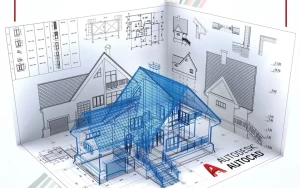Software Development
Duration: 12 weeks
Fee: 13,000 PKR /pm
Module 1: Introduction to Software Development
- 1.1 What is Software Development?
- Definition and importance of software development
- Overview of the software development lifecycle (SDLC)
- 1.2 Types of Software
- System software, application software, web applications, and mobile apps
- 1.3 Programming Paradigms
- Procedural, object-oriented, functional, and declarative programming
Module 2: Basic Programming Concepts
- 2.1 Introduction to Programming Languages
- Overview of popular languages (Python, Java, C#, JavaScript)
- 2.2 Fundamental Concepts
- Variables, data types, and operators
- Control structures (if statements, loops)
- 2.3 Functions and Modules
- Defining and calling functions
- Scope and lifetime of variables
Module 3: Object-Oriented Programming (OOP)
- 3.1 Introduction to OOP
- Key concepts: classes, objects, inheritance, encapsulation, and polymorphism
- 3.2 Designing OOP Applications
- Creating classes and objects
- Understanding relationships between classes (inheritance, composition)
- 3.3 Advanced OOP Concepts
- Abstract classes, interfaces, and design patterns (singleton, factory, etc.)
Module 4: Web Development Basics
- 4.1 Introduction to Web Development
- Difference between front-end and back-end development
- 4.2 Front-End Technologies
- HTML, CSS, JavaScript fundamentals
- Responsive design principles and frameworks (e.g., Bootstrap)
- 4.3 Back-End Technologies
- Introduction to server-side languages (Node.js, Python, Ruby)
- Understanding APIs, RESTful services, and database integration
Module 5: Databases and Data Management
- 5.1 Introduction to Databases
- Types of databases: relational vs. NoSQL
- 5.2 SQL Basics
- Creating, reading, updating, and deleting data (CRUD operations)
- 5.3 Advanced Database Concepts
- Normalization, indexing, and joins
- Introduction to ORMs (Object-Relational Mapping)
Module 6: Software Development Methodologies
- 6.1 Agile Methodology
- Principles of Agile development
- Scrum and Kanban frameworks
- 6.2 Waterfall vs. Agile
- Comparing traditional and modern approaches
- 6.3 Version Control Systems
- Introduction to Git and GitHub
- Branching, merging, and collaborative workflows
Module 7: Testing and Quality Assurance
- 7.1 Importance of Testing
- Types of testing: unit, integration, system, and acceptance testing
- 7.2 Automated Testing
- Introduction to testing frameworks (JUnit, Selenium, etc.)
- 7.3 Debugging Techniques
- Common debugging practices and tools (IDE debuggers, logging)
Module 8: Advanced Software Development Topics
- 8.1 Software Architecture
- Understanding software architecture patterns (MVC, microservices, serverless)
- 8.2 DevOps and Continuous Integration/Continuous Deployment (CI/CD)
- Overview of DevOps practices and tools (Docker, Jenkins, Kubernetes)
- 8.3 Security Best Practices
- Understanding common security vulnerabilities (OWASP top 10)
- Secure coding practices and mitigation strategies
Module 9: Capstone Project
- 9.1 Project Planning
- Defining the project scope and requirements
- Project management tools (e.g., Trello, Jira)
- 9.2 Development and Implementation
- Working on a full-stack project from start to finish, integrating front-end and back-end
- Implementing all learned concepts (OOP, database management, APIs)
- 9.3 Presentation and Feedback
- Presenting the project to peers and instructors
- Receiving constructive feedback and making improvements
Module 10: Final Assessment and Certification
- 10.1 Capstone Project Evaluation
- Assessing the final project based on defined criteria (functionality, design, code quality)
- 10.2 Feedback and Improvement Plans
- Individual feedback sessions to guide further learning
- 10.3 Course Completion Certificate
- Issuing certificates to successful participants upon completion of the course
Software Development
Software Development Course
Programming Languages
App Development










